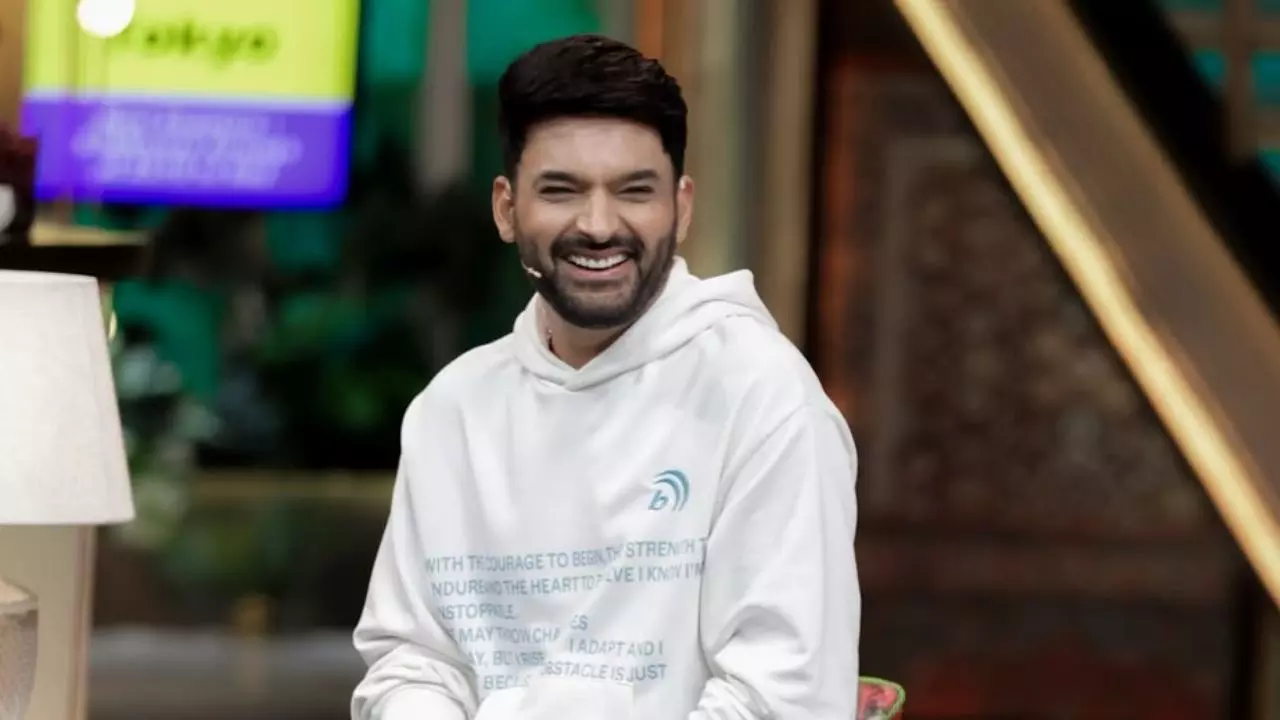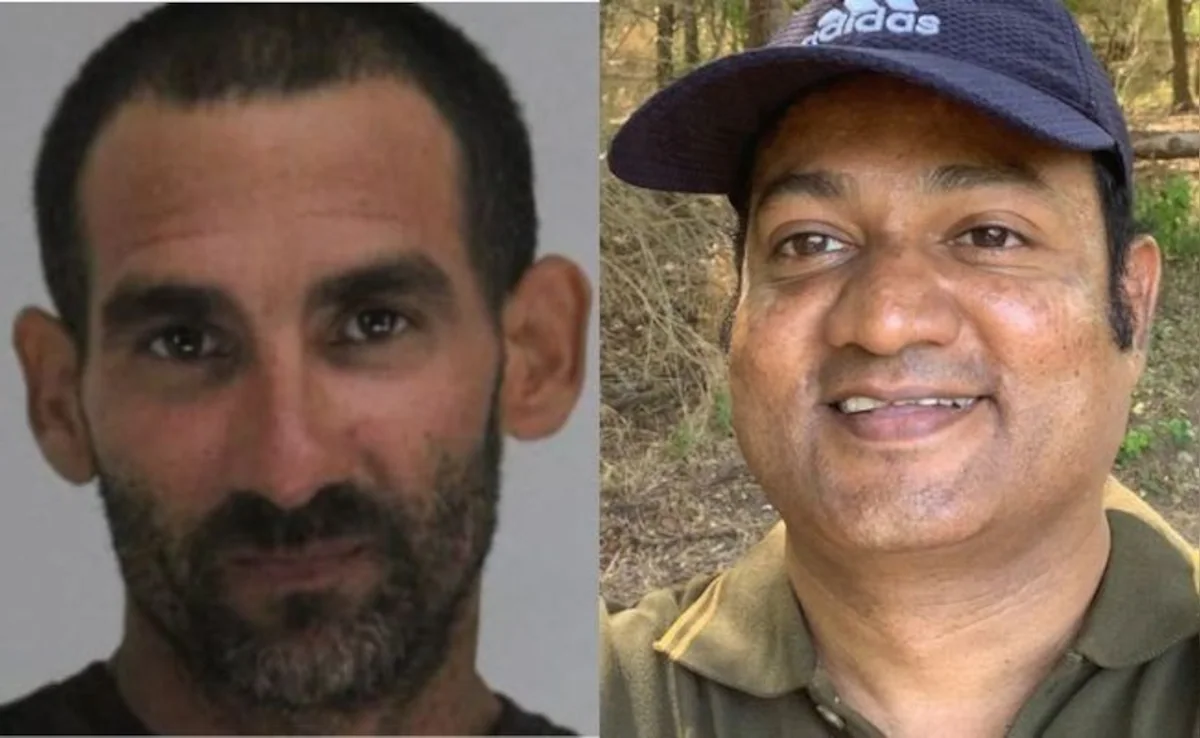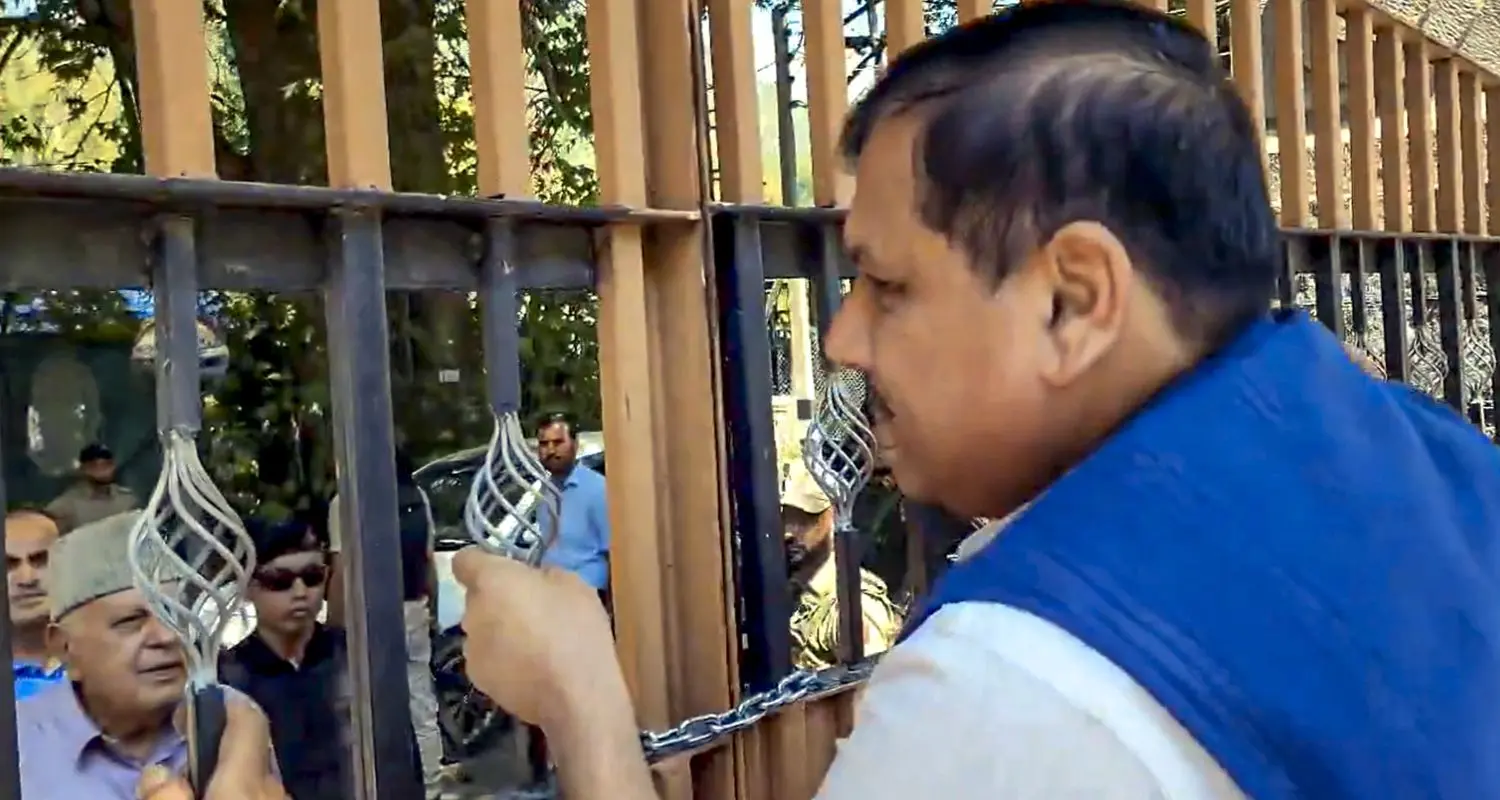Latest News
Centre alters “three-language formula” in education policy after anti-Hindi protests

Published
7 years agoon
By

[vc_row][vc_column][vc_column_text]In the wake of widespread protests in south India over what was seen as an attempt to impose Hindi, media reports said the Centre has made some changes in the part dealing with adoption of a three-language formula in schools — Hindi, English and the local mother tongue in non-Hindi states – in its draft education policy.
The Ministry of Human Resource Development on Sunday, June 2 tweaked the contentious parts of the draft that have been put up for public opinion.
“Imposing Hindi was never the intention. The way the draft was being perceived was contrary to the spirit of the three-language formula. That’s why tweaks have been made. This is not a U-turn,” News18 quoted government sources as saying.
The change in three-language formula
Titled ‘flexibility in the three-language formula’, the section on its implementation now reads, “In keeping with the principle of flexibility, students who wish to change one or more of the three languages they are studying may do so in grade 6 or 7, so long as they are able to still demonstrate proficiency in three languages (on language at the literature level) in their modular board examination some time during secondary school.
“Since the modular examination for language proficiency will indeed test only for basic proficiency in each language such a change in language choice in grade 6 would certainly be feasible if this student so desires and would in such cases be supported by teachers and schooling system. Additional choices of languages would therefore be offered in middle school for this purse of choice and flexibility.
“The change in language choice by students in the middle school will be subject to the condition that they would still require to demonstrate the expected level of proficiency in three languages (one language at the literature level) in their modular board examinations some time during secondary school.
“Since the modular board examinations for language proficiency will indeed test only for basic proficiency in each language, and since it is possible to achieve basic proficiency in a language in a span of about four years, such a change in language choice in Grade 6 would certainly be feasible if the student so desires and would in such cases be supported by teachers and the schooling system. Additional choices of languages would therefore be offered in middle school for facilitating flexibility in the study of languages within the three language formula.”
Earlier the draft that sparked a row over imposition of Hindi said, “In keeping with the principle of flexibility, students who wish to change one of the three languages they are studying may do so in Grade 6, so long as the study of three languages by students in the Hindi-speaking states would continue to include Hindi and English and one of the modern Indian languages from other parts of India, while the study of languages by students in the non-Hindi-speaking states would include the regional language, Hindi and English.”
On Sunday, the government had said it was only a draft policy put out in public to elicit their views.
The draft, proposed by a panel constituted by Union Minister Prakash Javadekar when he was the HRD minister in the previous government and led by eminent scientist K Kasturirangan, had suggested teaching of Hindi in non-Hindi speaking states. Javadekar on Sunday clarified that the committee had only prepared a draft report and no decision has been taken on implementing it.
He said misinformation was being created about the issue and the government had no intention of spreading a particular language. “We are considering public consensus,” he added.
Issuing a clarification, the HRD ministry said, “This is a draft policy submitted by the committee and is placed for the views of the general public.”
Union HRD Minister Ramesh Pokhriyal also described it as a misunderstanding. “State governments must have got the wrong information. Besides, Prime Minister Narendra Modi has already said that no particular language will be imposed on any region. We have made a draft and we will be collecting information from various states and then we will have further discussions,” he said.
Finance Minister Nirmala Sitharaman and Foreign Minister S Jaishankar posted identical messages on Twitter, assuring that the draft will be reviewed before implementation. Both the ministers are from Tamil Nadu – the state which has been loudest in its objections – and their tweets were in Tamil.
Vice President Venkaiah Naidu also defended the government, asking people to study, analyse and debate the draft policy and not draw hasty conclusions.
If the government was looking for people’s views, it got it in plenty.
In Tamil Nadu, parties of every political shade — from the opposition DMK to the Left and actor Kamal Haasan’s Makkal Needhi Maiam — slammed the report, which they saw as a precursor to the imposition of Hindi. Leaders from other southern states such as Karnataka and Kerala also joined them.
While DMK chief MK Stalin dubbed the move as ‘throwing stones at a beehive’, party leader T Siva said the Centre was playing with fire with such a decision.
“The DMK will never allow imposition of Hindi. It will raise its voice in Parliament and outside and strive to stall it,” DMK’s MP Kanimozhi Karunandhi said.
The Tamil Nadu government under All India Anna Dravida Munnetra Kazhagam (AIADMK), an ally of the BJP, maintained that the state will persist with a two-language formula – Tamil and English.
Former minister and Congress MP Shashi Tharoor on Sunday entered the debate, saying the solution to the three-language formula is not by abandoning the idea but ensuring its better implementation across the country.
“Most of us in the south learn Hindi as a second language, but nobody in the north is learning Malayalam or Tamil,” said Tharoor.
“The solution is not to abandon the three-languages formula but to implement it in a better manner,” he added.
Karnataka Chief Minister HD Kumaraswamy also spoke out on the language debate. “One language should not be imposed on others for any reason in the name of three-language policy,” he wrote in Kannada on Twitter.
Congress leader from Karnataka Siddaramaiah said on Monday the Centre was imposing Hindi on non-Hindi speaking states and sought for “more space”.
Using the hashtag StopHindiImposition, the former Karnataka chief minister wrote on Twitter, “Ours is a land that exhibits Unity in Diversity. Peaceful coexistence is the need to establish harmony &any force shall work against the laws of society. For us Kannada is an identity, &learning any other language should be by Choice & not by imposition.”
[/vc_column_text][/vc_column][/vc_row]


MK Stalin predicts frequent PM Modi visits to Tamil Nadu before assembly election


Tamil Nadu potboiler: Now, Sasikala to launch new party ahead of election


DMK leader’s son arrested after car rams family in Krishnagiri, one dead


4 states, 4 elections, 4 potential crises for Congress hoping for poll wins


Yogi Adityanath calls opposing Vande Mataram nothing short of treason


Rahul Gandhi faces expulsion demand in Lok Sabha over trade deal remarks
Published
6 months agoon
September 12, 2025
Bollywood comedian Kapil Sharma has come under the radar of the Maharashtra Navnirman Sena (MNS) after the use of the term Bombay instead of Mumbai on his Netflix show The Great Indian Kapil Show. MNS spokesperson Ameya Khopkar issued a warning, stating that the usage of the city’s former name could hurt the sentiments of its residents and demanded that the correct name, Mumbai, be used.
The controversy arose during an episode featuring actress Huma Qureshi, her brother Saqib Saleem, and the Shetty sisters. While talking about her bond with Saqib, Qureshi referred to the city as Bombay, explaining that she felt at home with him despite not being originally from the city. This comment drew criticism from the MNS, who have historically been vocal about protecting the identity and pride of Mumbai.
In a post on X, Khopkar stated in Marathi, that even though 30 years have passed since Bombay was officially renamed Mumbai, the term Bombay is still frequently used by celebrity guests on The Kapil Sharma Show, Delhi-based Rajya Sabha MPs, show anchors, and in many Hindi films. He noted that the name change was officially recognized by the Maharashtra government in 1995 and by the Central Government in 1996, preceding similar renamings in other major cities such as Chennai, Bengaluru, and Kolkata.
Khopkar further emphasized the seriousness of the matter during a media interaction in Mumbai. He stated that Sharma had been working in Mumbai for many years and described the city as his land of work. He added that the people of Mumbai admire him and watch his shows, and warned that the city and its residents should not be insulted, cautioning Sharma against repeating the mistake.
He added that if the reference had been made unintentionally, the mistake should be corrected immediately. Khopkar stated that all guests on the show, including celebrities and the host, should be informed in advance to refer to the city as Mumbai. He warned that if this is not followed, the MNS would launch a strong agitation.
The Great Indian Kapil Show has recently been renewed for a third season. Its first two seasons, comprising 13 episodes each, premiered in 2024, featuring a mix of Bollywood celebrities and entertainers. The controversy marks one of the few instances where the city’s political groups have publicly intervened over the naming of Mumbai on popular entertainment platforms.
Published
6 months agoon
September 12, 2025
In a horrifying incident in Dallas, Texas, an Indian-origin motel manager, Chandra Nagamallaiah, was brutally beheaded by a guest following an argument over a malfunctioning washing machine. The gruesome attack was carried out by 37-year-old Yordanis Cobos-Martinez in front of Nagamallaiah’s wife and children, leaving the family traumatized.
According to court records and affidavits, the confrontation began when Nagamallaiah reportedly told Cobos-Martinez not to use a broken washing machine at the Downtown Suites motel. The suspect became enraged, partly because the manager relied on a woman present for translation instead of speaking directly to him. Surveillance footage later revealed Cobos-Martinez producing a machete and repeatedly stabbing and cutting Nagamallaiah, despite the efforts of his wife and child to intervene.
The affidavit details that the victim tried to flee to the motel’s front office while screaming for help, but the attacker followed him and continued the assault. Cobos-Martinez removed Nagamallaiah’s key card and cellphone before ultimately beheading him. Disturbing footage reportedly shows the suspect kicking the severed head across the ground before throwing it into a trash bin.
Cobos-Martinez, a Cuban national with a long criminal history, including convictions for grand theft, carjacking, false imprisonment, and sexual offenses, was arrested shortly after the attack. Authorities found him a block away wearing a blood-soaked T-shirt, along with the victim’s key card and cellphone. U.S. Immigration and Customs Enforcement (ICE) officials noted that Cobos-Martinez should not have been in the country at the time, as previous attempts to deport him to Cuba were unsuccessful due to his criminal record.
The Department of Homeland Security described the beheading as unthinkable and stated that the case highlights the critical need for strict immigration enforcement. A witness to the attack told NBC DFW that they could not explain what they saw, describing the suspect as appearing there and not there at the same time, emphasizing the surreal and terrifying nature of the crime.
This shocking incident has left the Dallas community and Nagamallaiah’s family in deep distress, as authorities continue their investigation into the motive and circumstances surrounding the brutal murder.
Published
6 months agoon
September 11, 2025
Aam Aadmi Party (AAP) MP Sanjay Singh on Thursday accused Jammu and Kashmir Lieutenant Governor Manoj Sinha of placing him under house arrest while he was in Srinagar to protest the detention of the party’s sole J&K MLA, Mehraj Malik.
Singh climbed the gate of a government guest house in Srinagar to meet National Conference (NC) chief Farooq Abdullah and later shared visuals of the interaction on social media. He said it was a very sad thing that Abdullah, who has served multiple terms as Chief Minister of Jammu and Kashmir, came to meet him at the guest house after learning about his alleged house arrest but was not allowed to do so. Singh further questioned the authorities’ actions, asking whether if this is not dictatorship, then what it is.
Malik, the MLA from Doda Assembly seat, has been detained under the Public Safety Act (PSA) on charges of disturbing public order. This marks the first instance of a sitting lawmaker being booked under the PSA, which allows authorities to detain individuals without charge or trial for up to two years. Singh alleged that Mr. Malik’s detention was retaliation for raising people’s issues in his constituency.
Abdullah also condemned the attempts to stop Singh from holding his protest. In a statement to news agency ANI, he said that preventing Singh from exercising his right to protest was absolutely wrong and accused the Lieutenant Governor Sinha of misusing his powers. He stressed that the right to protest is guaranteed by the Constitution of India, noting that Jammu and Kashmir being a union territory gives the LG significant authority, which, according to him, was being used for the wrong purposes. Abdullah questioned whether it was necessary to prevent Singh from speaking and asserted that this is not an autocracy, there is a constitution here.
Abdullah drew parallels with the recent unrest in Nepal, where protests led to the resignation of Prime Minister KP Sharma Oli, and cautioned that India must safeguard its Constitution to prevent similar circumstances. He urged the LG to uphold constitutional principles, warning that failure to do so could risk unrest, and emphasized the need to take care of the Constitution before such a fire breaks out in the country.
Other opposition leaders, including AAP chief Arvind Kejriwal and Shiv Sena (UBT) leader Sanjay Raut, also expressed concern over the move, condemning what they described as an infringement on democratic rights.






APN News is today the most watched and the most credible and respected news channel in India. APN has been at the forefront of every single news revolution. The channel is being recognized for its in-depth, analytical reportage and hard hitting discussions on burning issues; without any bias or vested interests.


Jammu and Kashmir scripted history on Saturday by winning their first-ever Ranji Trophy title, edging past eight-time champions Karnataka on...


Explosions were reported in Iran’s capital, Tehran, on Saturday morning after Israel carried out what it described as a preemptive...


Already through to the semi-finals, England cricket team continued their dominant run in the Super 8 stage of the T20...
© Copyright 2022 APNLIVE.com
